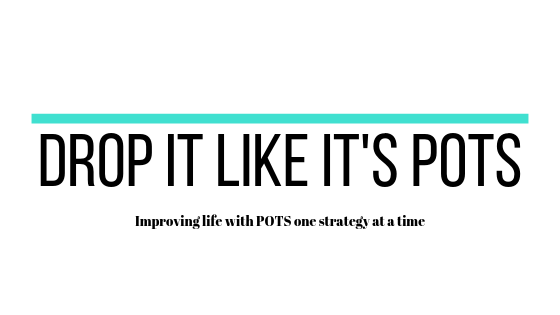“Sleep is critical to getting better”- Dr. Fleming
Dr. Fleming is an internist in the Chronic Fatigue and Fibromyalgia Clinic at the Mayo Clinic. When I had my appointment with him, he admitted that researchers do not fully understand how sleep impacts our bodies. However, he said it is one of the most impactful things on our health.
Why sleep is important
- Cellular repair and building new cells
- Regulates hormones
- Strengthens the immune system
- Improves mental and emotional well-being
- Increases focus and cognitive function
- Improves energy
- Provides a break from adrenaline release (during REM)
Tips for healthy sleep
Naps
Naps can be risky. Mayo recommended avoiding them or keeping them shorter than 30 minutes. Substantial naps may disrupt nighttime sleep cycles.
As a result of disrupted sleep cycles, you may not be reaching the deepest level of sleep called REM (rapid eye movement). REM sleep is essential for our nervous system. I found it fascinating in that Time article that our brains take a break from releasing norepinephrine during REM sleep. This is a significant consideration, especially for people with hyperadrenergic conditions (ex. certain subsets POTS and ME). The less adrenaline our bodies release, the better. So, the more REM, the better. Therefore, the shorter the naps, the better. Capisce?

Waking in the middle of the night
If you fully wake up in the middle of the night, your body may restart the sleep cycle you were on. This may cause you to have less restorative and REM sleep. Things that help prevent this are:
- Taking it easy on the water before bed
- Not checking electronic devices for time (the light may trigger your body to wake up)
- Using nightlights so you can stumble in and out of the bathroom in the middle of the night
If you have little ones, sleeping through the night probably isn’t gonna happen. I hear ya. I remember the typical schedule when my boys were babies was 2 hours of sleep, feed, 2 hours of sleep, feedfeedfeedfeed, 1 hour of sleep, and that’s it. Even being school-aged, my kids frequently wake us up for something. Don’t sweat what you can’t control. There are other healthy sleep habits you can implement and benefit from.
Busy brain
You know what I’m talking about- when your brain tries to solve the world’s problems whilst remembering every embarrassing thing you have ever done.

Sleep stories on the Calm app are very effective to combat a busy brain. I talk about this in my post on meditation. There are also sleep story podcasts with stories that get progressively more boring until you pass out.
If you are still awake after 15 minutes, it is best to get out of bed and do a quiet activity (no screens) until you get sleepy again. This helps keep your brain programmed that bed is for sleep.
Essential Oils
Disclaimer: This is not a suitable practice for everyone. You may consult your doctor and an Aromatherapist to see what is appropriate for you. I also recommend the site Using Essential Oils Safely. It has great information and charts for dilution.
A few years ago, I had a brief period of insomnia. A blend of Cedarwood and Marjoram applied to my skin (arms) before bed helped me fall asleep faster and stay asleep. After a couple weeks of good sleep, I stopped the oils and was fine. I think it helped me establish a healthy pattern. This is anecdotal evidence based on my personal experience, so take it what it is worth.
Warning: Cedarwood smells like wet wood + a hint of cat pee.
Basic tips
You will find these tips almost everywhere, but I will repeat them for the sake of being complete:
- Only use the bed for sleeping (ex. not reading or watching TV in bed)
- Keep the bedroom at a cool temperature
- No electronics within 1-2 hours of bedtime
- Blackout curtains
- White noise
- Have a consistent routine
- Limit caffeine
Meditation or deep breathing
Meditating or deep breathing before bed sets the nervous system in a more relaxed state that promotes better sleep. Mayo recommends doing deep breathing before sleep for 10-15 minutes.
Amount of sleep
Mayo recommends between 7-8 hours.
Get outside
Our bodies rely on light and day cues for our circadian rhythm. Depriving ourselves of natural light can mess with sleep via interrupting the circadian rhythm. I truly feel my best when I spend regular time outdoors, even if it’s only for a short walk.
It takes around 3-4 weeks of healthy sleep habits to improve your sleep. If nothing helps you sleep, I would recommend seeing a neurologist that specializes in sleep disorders.
What tips do you have for getting healthy sleep?
Disclaimer: I am not a medical professional. Statements on this site are not meant to be taken as medical advice. These statements reflect my personal experiences having mild-ish post-viral POTS and ME. Due to the wide spectrum of these diseases, comorbidities, and everyone being different, your experiences may be very different than mine.
Note: If you post a comment, this site does NOT have a feature to notify you of responses to your comment. I have not found a good solution for that yet. However, I usually respond to every comment in a timely manner, so be sure to check back.

1 Comment
After reading this I can see I have quite a few bad sleeping habits that need correcting. I used to read before falling asleep, now I play games on my tablet. Bad, bad, bad.